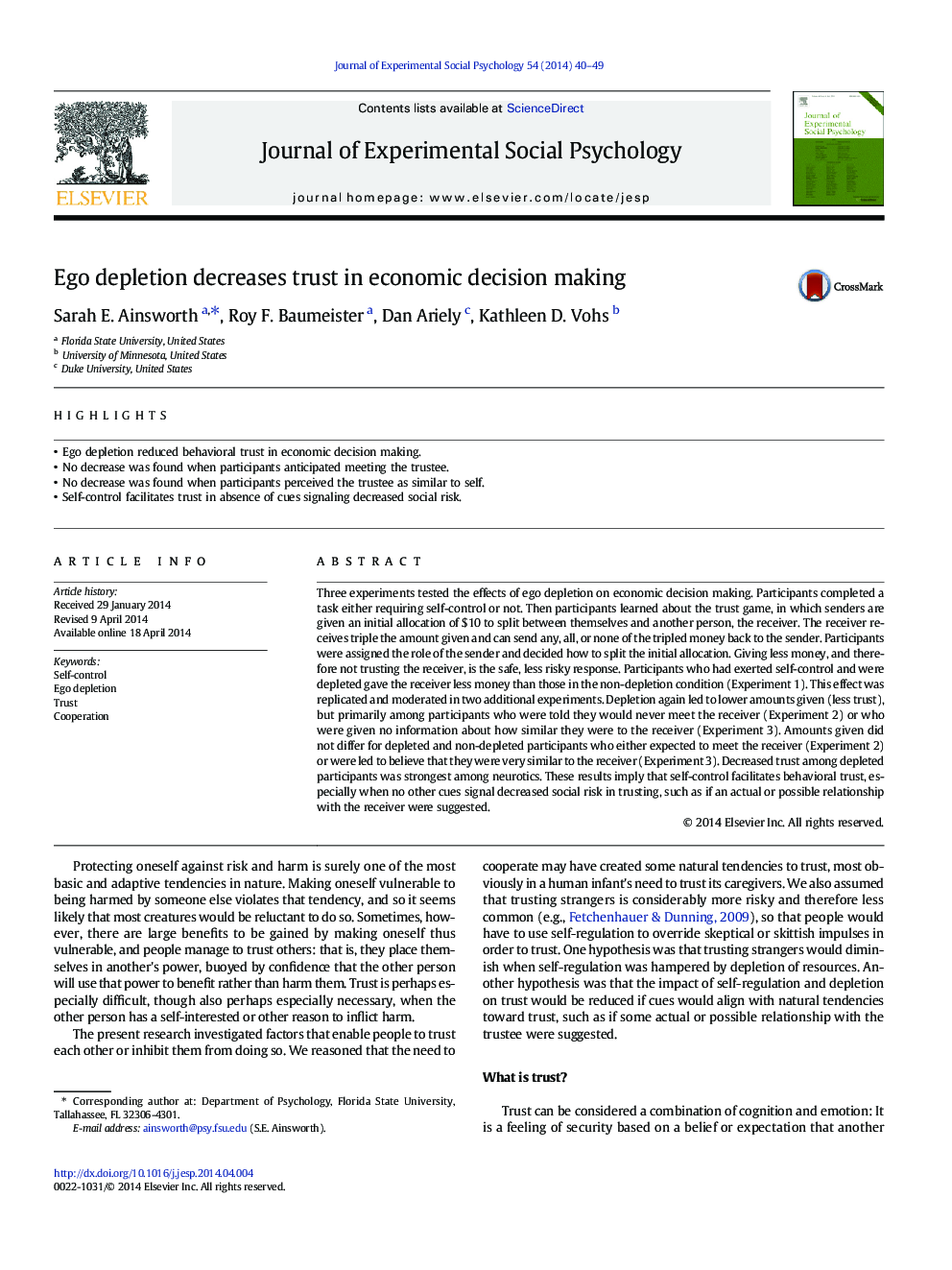| کد مقاله | کد نشریه | سال انتشار | مقاله انگلیسی | نسخه تمام متن |
|---|---|---|---|---|
| 947798 | 1475869 | 2014 | 10 صفحه PDF | دانلود رایگان |

• Ego depletion reduced behavioral trust in economic decision making.
• No decrease was found when participants anticipated meeting the trustee.
• No decrease was found when participants perceived the trustee as similar to self.
• Self-control facilitates trust in absence of cues signaling decreased social risk.
Three experiments tested the effects of ego depletion on economic decision making. Participants completed a task either requiring self-control or not. Then participants learned about the trust game, in which senders are given an initial allocation of $10 to split between themselves and another person, the receiver. The receiver receives triple the amount given and can send any, all, or none of the tripled money back to the sender. Participants were assigned the role of the sender and decided how to split the initial allocation. Giving less money, and therefore not trusting the receiver, is the safe, less risky response. Participants who had exerted self-control and were depleted gave the receiver less money than those in the non-depletion condition (Experiment 1). This effect was replicated and moderated in two additional experiments. Depletion again led to lower amounts given (less trust), but primarily among participants who were told they would never meet the receiver (Experiment 2) or who were given no information about how similar they were to the receiver (Experiment 3). Amounts given did not differ for depleted and non-depleted participants who either expected to meet the receiver (Experiment 2) or were led to believe that they were very similar to the receiver (Experiment 3). Decreased trust among depleted participants was strongest among neurotics. These results imply that self-control facilitates behavioral trust, especially when no other cues signal decreased social risk in trusting, such as if an actual or possible relationship with the receiver were suggested.
Journal: Journal of Experimental Social Psychology - Volume 54, September 2014, Pages 40–49